Central African Guitar
Develop your Sebene, Zouk, Rumba and Makossa guitar lines to performance standard in just 30 days or your money back.
30-Day money back guarantee
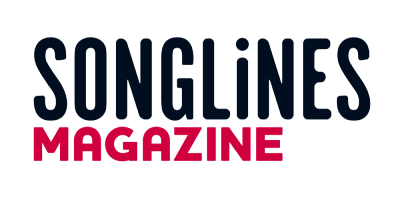
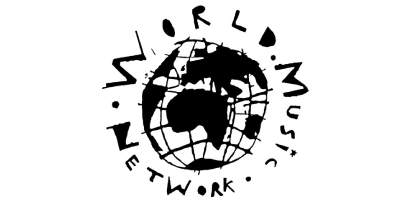

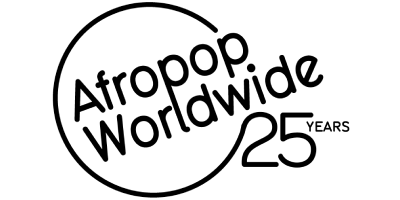
Explore A Rich Musical History
Imagine traveling back in time to the 1940s, when the African Rumba – a unique style influenced by Cuban Son music – was born. Wendo Kolosoy’s ‘Marie-Louise’, the first song recorded on African soil, was captivating listeners. ‘Congolia’, the continent’s first radio station, was broadcasting music created on the Ngoma and Opika labels.
Or maybe to the 60s, when Le Grande Kalle released ‘Independence Cha Cha’ and ushered in a new era of music as colonial power began to wane. Electric guitars became readily accessible, the amps got louder, and the drum kit arrived. Franco Luambo Makiadi and Tabu Ley battled it out ferociously for chart dominance. Meri Djo energised audiences with the original Cavacha rhythm. Dr Nico laid down the Sebene guitar lines that would shape Central African music for the next 50 years.
Now Imagine All Of That Was Right At Your Fingertips.
make instant progress
The African Guitar Curriculum
Click below to preview the blue highlighted lessons
Module 1 - African Rhythm Guitar Basics - 23.58
- Cameroonian Rhythm Guitar 3.53
- Performing Makossa With The Band 1.25
- Makossa In D Major 2.07
- Accompanying The Rhythm Section 2.41
- Zouk Music – Méchant 3.24
- Zouk Music – Love 2.49
- Traditional Luba Music – Mutuashi1.37
- Learning Kidagudagu 2.42
Module 2 - How To Play Sebene - 47.53
- Rhythm Guitar, Misolo & Lead 4.59
- The Structure Of Sebene 3.12
- Trois Temps Chord Progression 5.55
- Sept Sept – 2 Chord Progression 4.53
- Zouk Music – Méchant 3.24
- Enterademie 1 4 1 5 Progression 5.03
- How To Play Minor Sebene 3.09
- Quatre Temps – 4 Chord Progression 4.04
Module 3 - Congolese Rumba And Salsa - 30.51
- Franco Song Study – Mario 4.56
- Franco’s Lead Guitar Part 3.33
- What Is Rumba? Explanation 3.50
- Learning Franco’s Interval Technique 4.59
- Variations In Rumba Odemba 5.09
- Rhythm Guitar In African Salsa 3.26
- Hybrid Picking Interval Technique 3.35
The Ultimate Learning Experience
free bonuses below
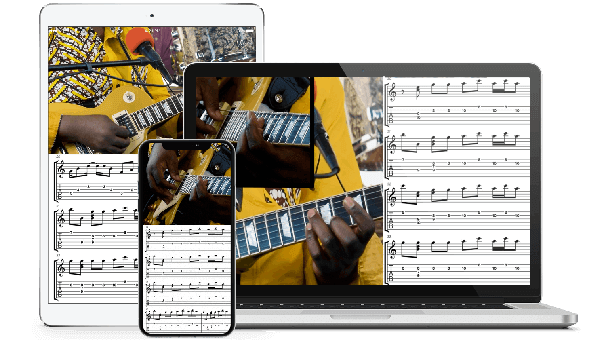
interactive on-screen notation
Learning new skills is easier with our innovative, interactive tools. Access on-screen notation, tablature, animated fretboards, variable tempos, and more today.
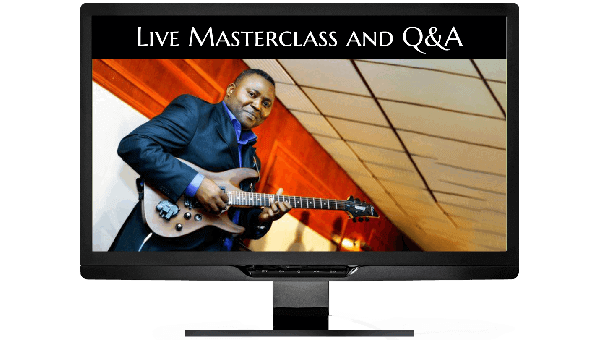
live masterclass and q&a
Take part in the next session live and receive immediate feedback and answers about anything Rumba music related from Jeannot Bel.
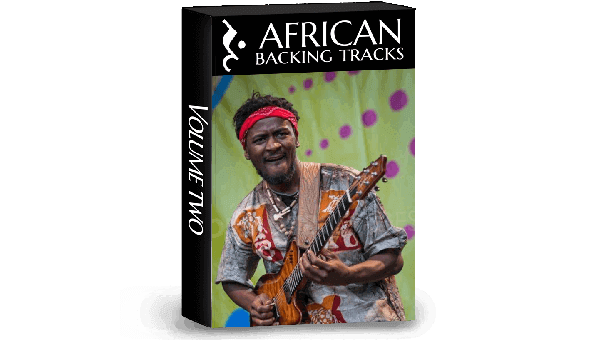
african backing tracks – volume 2
Put your new techniques into practice and Jam on recordings by the World Music Method tutors over different African grooves including Soukous, Zouk and Afrobeat.
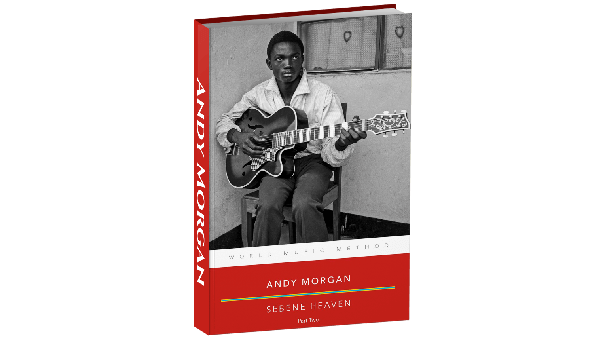
sebene heaven ebook part two
The bitter-sweet paradox of Congolese Rumba. Andy Morgan’s eBook details the gripping history of the countries main musical export.
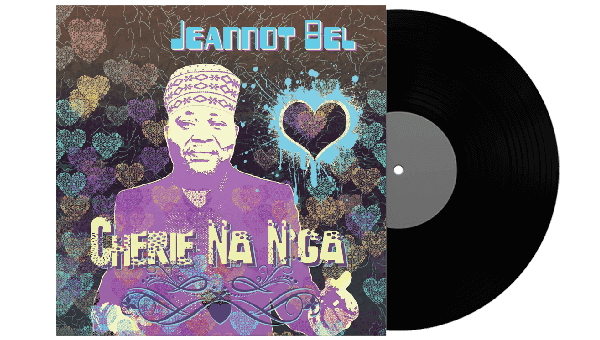
cherie na n’ga
album
Download Jeannot Bel’s self-produced album ‘Cherie Na N’Ga’ and hear his guitar work in context with his band.
Develop Expert Knowledge
now you finally can
Become Fluent in African Guitar
Register today and get immediate lifetime access to the following
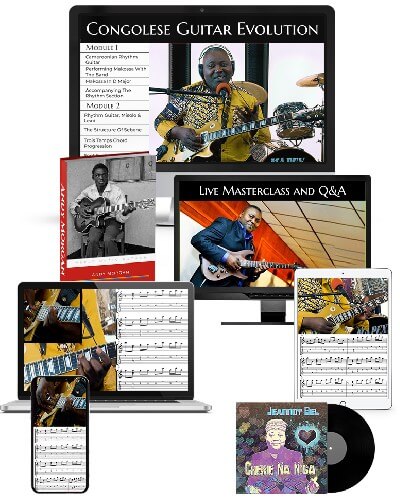
central african guitar – 1 hour 40 min online course
£97
interactive on-screen notation
£77
live masterclass and q&a
£17
african backing tracks – volume two
£17
sebene heaven part 2 – ebook
£10
cherie na n’ga – digital album download
£10
Total Value
£228
Lifetime Access Only
£97
one time payment
✔ 30-Day Money Back Guarantee
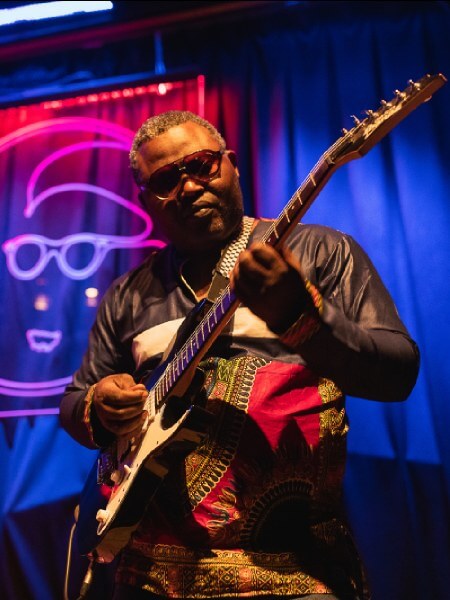
30 days risk-free
Satisfaction Guaranteed
If you aren’t happy with your Central African Guitar course, we’ll refund you within 30 days. There’s nothing to lose, and a lifetime of beautiful new music to gain.
Just pick up your guitar, sit down with Jeannot, and start right now!
Ready to get Started?
Meet Your Teacher
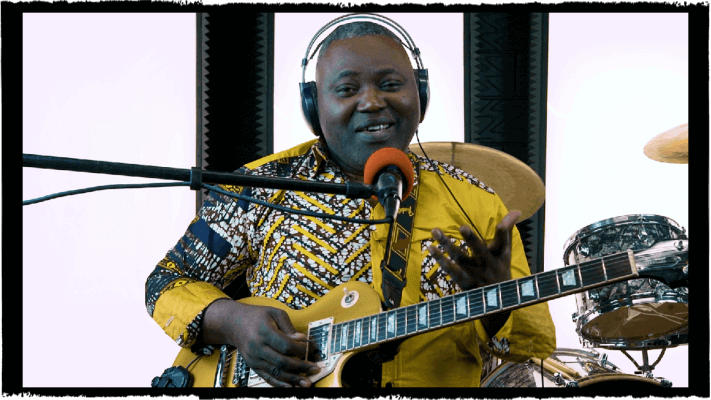
Kinshasa-born guitarist Jeannot Bel embraces the sounds that shaped his homeland and influenced the music of an entire continent with a style that bridges the gap between the pioneering megastars of mid-century Congolese guitar to keen musicians from the modern era. Bel has come a long way since building his first two-string guitar from a piece of wood, a tin of milk, and a bicycle cable.
Through his rhythm guitarist cousin Dawa Lusamba he was able to connect with legendary Congolese guitar pioneers like Roxy Thsimpaka, Franco and Pepe Felly Manuaku as a youth, transitioning from a determined kid playing on a shared acoustic guitar to a respected pro who tours the world with Kanda Bongo Man’s band and other big names in African guitar music.
unlock generations of expertise
Authentic African Guitar Lessons
Many of the top African Rumba guitarists learned their craft the old-fashioned way – playing directly under the wing of a more established player. With this course, I want to give students across the globe access to this type of authentic Congolese training.
We start by covering the fundamentals of Central African guitar, then dive into the classic Rumba Odemba and Rumba Fiesta guitar styles played by Franco and Dr Nico. These styles will help you transition from the early Cuban music heard on African radio stations in the 40s into the new African genres of the 60s. From there, we look at Sebene, Congo’s intensely danceable genre of world-famous guitar playing.
You’ll learn how to create a lead guitar part over all of the common Congolese chord progressions as well as how to underpin a rhythm guitar part to give the soloist the platform upon which to fly. Before long, you’ll be a Central African guitar expert.
As a bonus, due to Congolese music’s pioneering status, influence over the music of other African nations, and relatively simple, repetitive chord progressions, the lessons from this course are transferable to many different regional guitar styles.
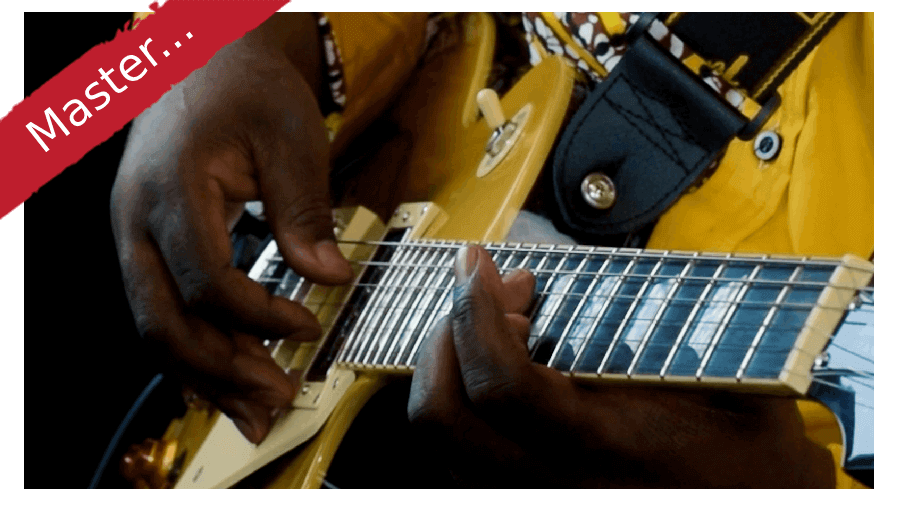
….. the original techniques of Franco through easy to follow close ups.
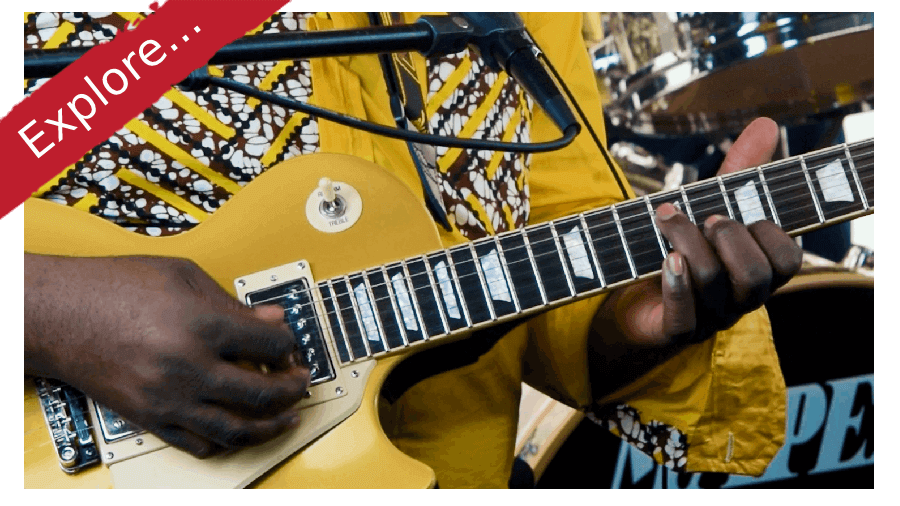
….. the rich ancestry traditional musical approaches from Central Africa.
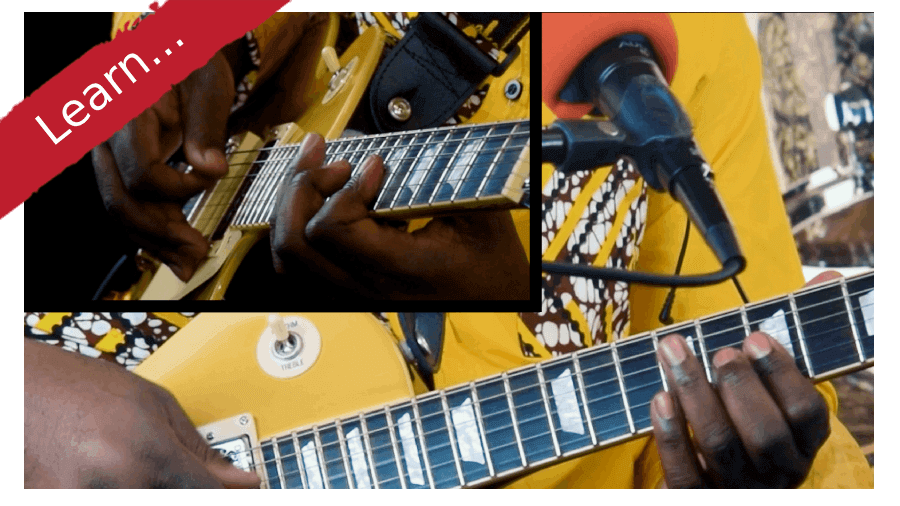
….. how to confidently integrate the rhythm, misolo and lead guitar parts.
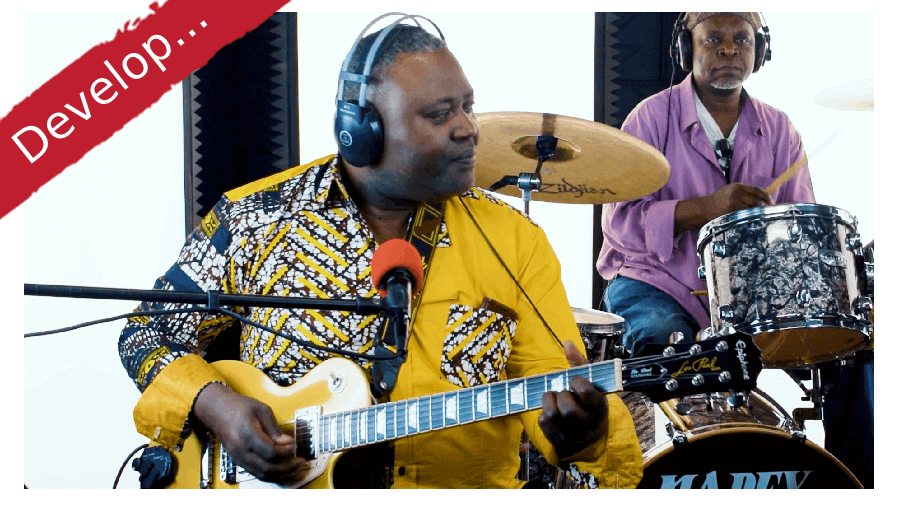
….. essential live skills for interacting with an African rhythm section.
Become African Groove Confident

Lifetime Access Only
£97
one time payment
✔ 30-Day Money Back Guarantee
